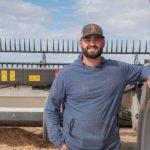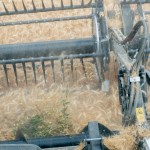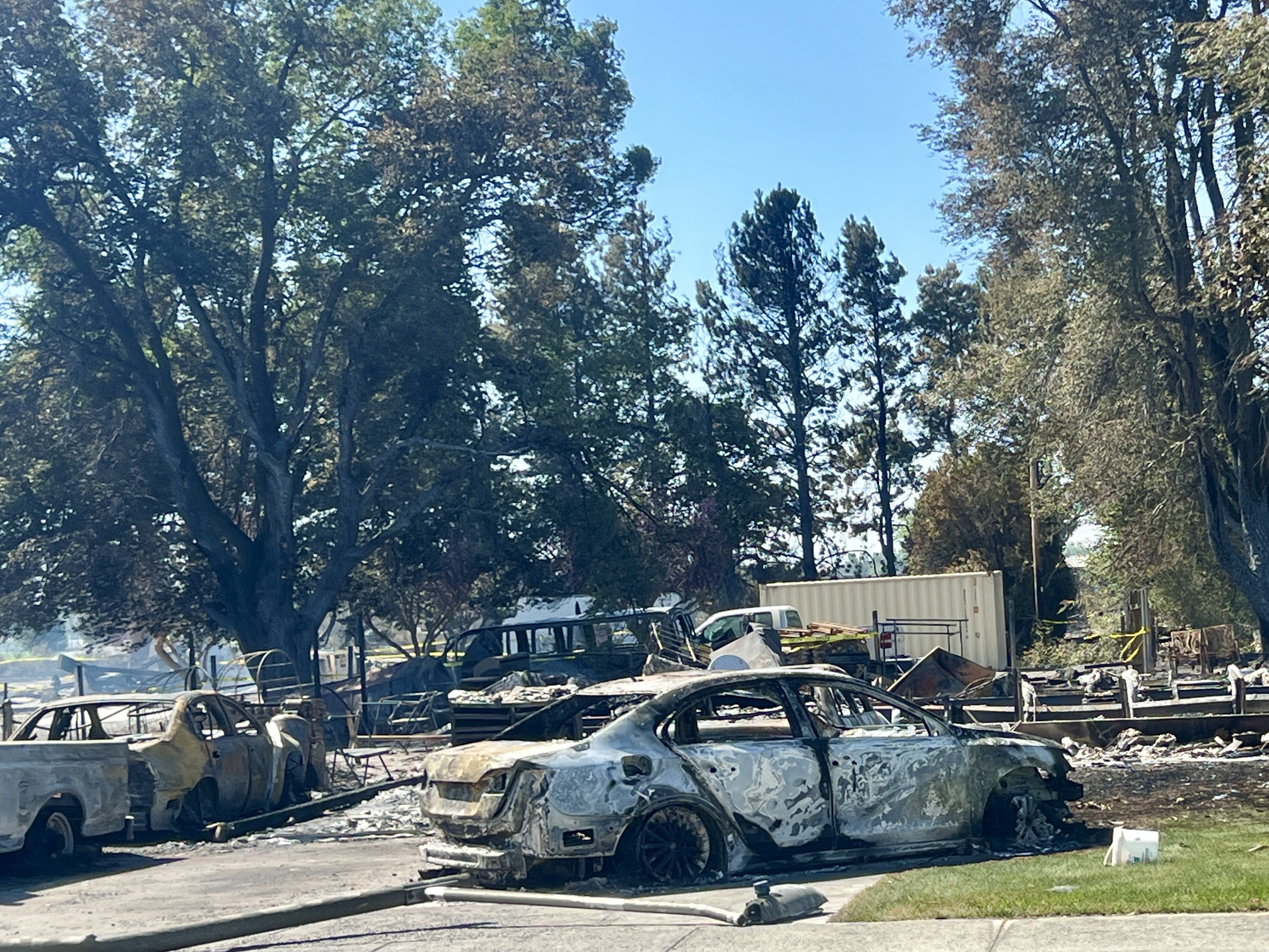Jake Lindsay devoted to his land and community in Heppner
Published 6:00 am Monday, July 28, 2025




Amid drought and market challenges, the Morrow County farmer embraces the hard work that keeps his family farm alive
MORROW COUNTY — As the harvest season ramps up, Jake Lindsay powered his combine harvester through a sea of golden wheat, blades tearing through the tall straws while grain steadily filled the tank.
Lindsay, a wheat farmer and president of the Oregon Wheat Growers League in Morrow County, worked his field July 21 in Heppner. Warm, muggy air stirred the hard red winter wheat as scattered raindrops fell from a gray sky.
“We don’t really hope for summer rain,” he said. “It can set us back a day. We didn’t get quite enough to shut us down this time … but summer rain is tough, especially for alfalfa farmers or anyone with a row crop on the ground. It can hurt your return and lower quality. Still you’re never really going to complain about rain. We need it.”
Trending
Drought during the fall, winter or spring can affect how the wheat crop develops later on, he said.
“This year, the average yield is a little above average for our county,” Lindsay said. “But what I’m seeing in terms of quality is that the grain is very shriveled and on the lighter side.”
Most farmers in the area, he added, are seeing the same issue — they’re not getting the test weight they’d prefer.
“A full truckload, which last year would’ve been about 62,000 pounds, is coming in closer to 55,000 to 57,000 pounds,” Lindsay said. “That means each bushel is coming in 2 to 3 pounds under what it should be and that’s due to drought conditions.”
Once the grain reaches the silo elevator, it undergoes a quality check. If it doesn’t meet certain standards, farmers get less money for their crop.
“They won’t necessarily take it off the price directly, but they calculate value based on what an average bushel should weigh,” Lindsay said. “So if your grain is lighter, you’re just not getting as much value per load.”
Trending
Protein content is another critical factor that can affect price. Each wheat variety has an industry standard for protein levels. For soft white wheat, elevators typically want protein around 13%. For hard red winter wheat, the target is closer to 11–11.5%.
“We’re struggling to hit protein targets,” Lindsay said. “If you’re under or too far over the desired protein level, they’ll dock you for that as well.”
Although drought remains the top concern, Lindsay said invasive weeds and rising operational costs also threaten his family’s operation.
“The price of wheat seems to go down every year, while the cost to grow it keeps going up,” he said. “That challenge is an everyday stress — how do we survive another year? We’re not really thinking 10 years into the future as much as right now, how to pay the bills, keep doing what we love and protect the land that’s been in our families for generations.”
Like several other grain growers in Morrow County, Lindsay plans to spend last part of July into early August harvesting his wheat, loading the grain into a truck headed for the Hogue-Warner Elevator in Irrigon.
Continuing the family farming legacy
Lindsay steered his combine across the field as its interface flagged minor issues along the way. Nearby, his 16-year-old cousin, Mason Sites, operated a second combine, carefully guiding it through the field.
To operate the machine properly, he said, it’s about understanding the lay of the land and listening to the equipment — striking a careful balance between family tradition and modern technology.
Lindsay is the fifth generation to till and toil his family’s land, Turner Ranch, and for him, the pulse of harvest comes naturally. His great-great-great-great-grandfather, Sam Turner, bought the property in the 1850s, and it has stayed in the family ever since.
“I think for kids who come from farming backgrounds, they need to understand that, yeah, this isn’t exactly glamorous — but I don’t think there’s a better way to live,” Lindsay said. “You work for yourself. You put in the hours to protect something your family has put their heart and soul into for generations. Not a lot of things are cooler than that — five generations of one family working toward the same dream, keeping this place in our hands and helping it continue to thrive.”
Lindsay attended Oregon State University, where he earned a four-year degree in agricultural business management with a minor in soil science. When his parents asked whether he wanted to return to the farm, he wasn’t sure it was the life he wanted — especially after college.
But when he got home, the choice was obvious.
“Once I came back, it was clear this is where I wanted to be,” he said.
Still, he admitted the work is hard and often thankless.
“You’re doing it for yourself, for the land you grew up on and the land you love,” Lindsay said.
For him, the strongest pull was the hope of giving his future children the same upbringing he had — even though he doesn’t have kids yet.
“I’ve always wanted them,” he said. “So the question became, how do I come home, farm and give them the same opportunity I had? And if they choose a different path, that’s fine — they should follow their dreams. But of course, you’d love to see the farm continue into another generation. That’s what you do it for.”
Lindsay said although younger generations have a harder time wanting to farm and would rather pursue different careers, as president of the Morrow County Wheat League he works with local farmers to discuss policies and support each other’s goals.
“We check in on how things are going, share what’s working and explore what could be improved,” he said. “We try to help each other because we’re not competing against one another. We’re all competing for the same thing — feeding the world and taking care of our land the best we can. It’s about banding together and knowing that if nobody else has your back, at least your neighbors do.”
Lindsay encouraged those without a farming background but interested in agriculture to reach out directly to farmers, noting that farm help is always in demand — especially workers passionate about the industry.














